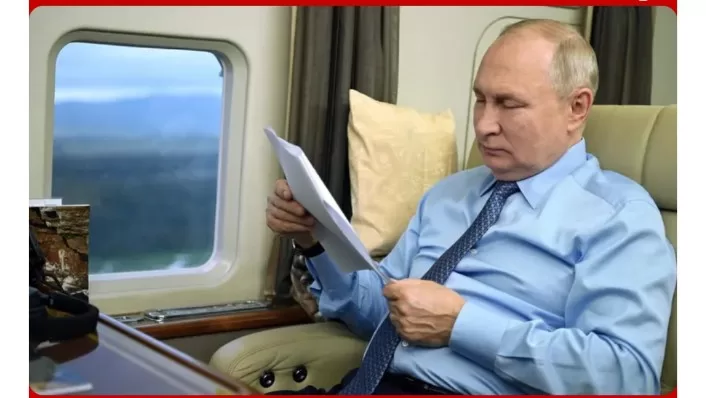In a significant diplomatic statement, Russian President Vladimir Putin has emphasized the necessity for Ukraine to rescind the prohibition on negotiations, a directive previously enacted by President Zelensky. President Putin made this declaration during his address at the Eastern Economic Forum (EEF) on Tuesday.
The Russian leader articulated that, in order to pave the way for constructive dialogue, Ukraine must take the decisive step of nullifying the embargo on negotiations that had been imposed through a presidential decree. This decree, initiated by the Ukrainian President, effectively halted any negotiation efforts, including those led by President Zelensky himself.
The Eastern Economic Forum, spanning from September 10th to 13th, is currently being held in Vladivostok and serves as a significant platform for international discourse and economic collaboration.
President Putin underscored that if the United States believes that Ukraine is prepared for negotiations, it should be incumbent upon them to dismantle the decree that bars such discussions. Putin’s stance was clear: the first gesture towards dialogue should involve the revocation of this decree.
He stated, “If the United States thinks that Ukraine is ready for talks, let them cancel the ban on negotiations imposed by a decree of the Ukrainian President by which he prohibited himself and all others from conducting negotiations. So, Blinken says they are ready. Very well, then, let them cancel that decree for starters,” as reported by TASS, a Russian state-owned news agency.
President Putin urged the Ukrainians to express their genuine willingness to engage in talks through a public declaration, thereby demonstrating their commitment to the negotiation process. He reiterated that such a move would not compromise Ukraine’s international image.
Furthermore, Vladimir Putin emphasized the significant toll Ukraine has borne in terms of human resources and military equipment during its recent counteroffensive operations. He insinuated that Ukraine, in alignment with its Western supporters, was endeavoring to maximize territorial acquisitions.
The Russian President contended that, once Ukraine’s resources – encompassing manpower, equipment, and ammunition – are depleted, they may seek an end to hostilities. Nevertheless, Putin suggested that the prospect of negotiations might be used as a tactical maneuver to buy time for replenishing their reserves and bolstering their military capabilities.
Notably, President Putin’s statement resonates with remarks made earlier by Russian Foreign Minister Sergey Lavrov. Lavrov also expressed Russia’s willingness to engage in negotiations to resolve the Ukrainian conflict. However, he stressed that such negotiations must take into account the prevailing ground realities and the cumulative consequences of NATO’s assertive policies.
This diplomatic overture by President Putin underscores the complexity and sensitivity of the situation in Eastern Europe, particularly in the context of Ukraine. The international community will keenly observe how these diplomatic maneuvers impact the ongoing geopolitical dynamics in the region.







